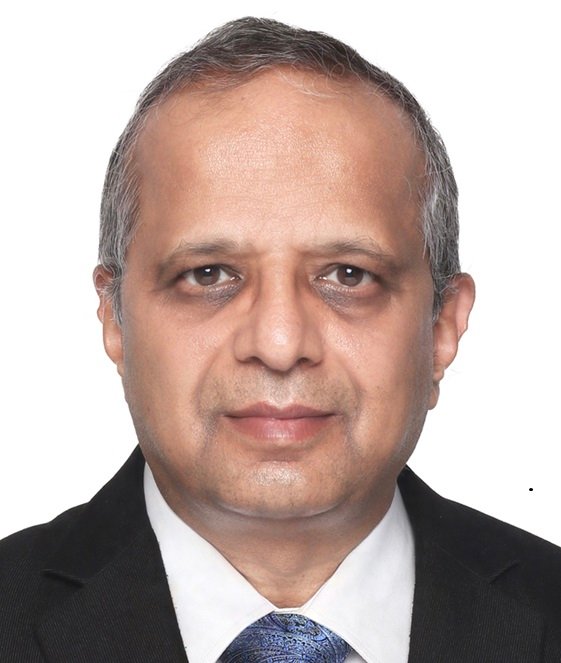India is an emerging market for biostimulant industry
Prashant Kharwadkar, Regional Business Director, Acadian Plant Health shares his views on status of Indian Biostimulant sector with AgroSpectrum.
Acadian Plant Health (APH) is a biostimulant company that focuses on providing environmentally friendly and scientifically sound biological treatments for both specialty and broad-acre fields of agriculture. This company is dedicated to the launch of innovative goods that have been granted patents, with a particular emphasis on climate-smart and regenerative agriculture. Recently, Acadian Plant Health published expanded findings from a multi-year study on the water use of almonds in California. These findings demonstrate how biostimulant technology can assist growers in reducing water use and plant stress while maintaining productivity. Prashant Kharwadkar, Regional Business Director, Acadian Plant Health shares his views on status of Indian Biostimulant sector with AgroSpectrum.
How do you envisage the future of the biostimulant industry in India?
Indian Agriculture has vast available acreages of a variety of crops that provide enormous growth opportunities for quality biostimulants by sustainably improving crop productivity, soil health & farmer’s income.
Indian Agriculture has made spectacular progress from starvation to a net exporter of food and India is now feeding the world. This has been made possible with the collective & collaborative efforts of all stakeholders and more importantly, our hard-working farmers.
Globally, the climate crisis has affected the agricultural system by impacting the quality and quantity of crop production with outcomes of untimely rains, floods, soil salinity, drought problems, deteriorating soil health, seasonal aberrations, and other abiotic environmental stresses in crops.
The increasing global population and the consequent rise in global demand for food will further exacerbate the need for sustainable farming solutions like seaweed extracts, that can help improve the health of the soil and the crop plants. Integration of seaweed biostimulants along with conventional fertilizers & crop protection chemicals in the agricultural production system now become a necessity for economically sustainable agriculture.
Increasing awareness among farmers on the importance of good quality biostimulants against adverse impact of crop chemicals/residues, pest – diseases resurgence, increasing cost of production, climate changes (abiotic stresses), and deteriorating soil health will continue to drive the demand for good quality biostimulants and sustainable technologies in agriculture for increasing crop yield & produce quality. India is an emerging market for biostimulants and provides a unique opportunity for continued growth on a sustainable basis.
What are the major challenges that are hampering the growth of biostimulants in India?
Bridging the last mile gaps i.e. reaching out and connecting with the farmers which are spread in more than 600,000 villages and making them understand the importance of quality biostimulants is the biggest challenge. Farmer’s perception on all biostimulants inputs is similar. Therefore, dissemination of knowledge and differentiation are key for speedy growth of the market with farmer’s ROI.
Currently, which types of Biostimulants are popular among the farmers and mostly in which part of the country they are used most?
Seaweed extract-based products constitute more than 1/3 of Indian biostimulant markets followed by amino acid-based products for the foliar / spray segment. Humic substances are mostly used as soil conditioners. Fruits and vegetables which are horticultural crops contribute more than 50 per cent of biostimulant markets whereas Rice and Sugarcane markets are primarily granular biostimulants markets.
The Indian government announced in April 2021 that biostimulants would be governed by the same standards that regulate fertilizer and other crop nutrients used to boost soil health. How it has impacted the biostimulant industry?
India’s Biostimulant regulation may lead to consolidation in the biostimulant industry segment and this move by the Govt. trying to ensure that only good quality products are available and reach the farmers. This new development augurs well for the farmers and Indian Agriculture as a whole for its sustainable development.
What kind of support from the government is required for the growth of biostimulant sector?
The Indian Government is already emphasising and encouraging Organic farming & sustainable Agriculture where biostimulants play a key role. These initiatives of the Government provide the required impetus for the development of the biostimulant Industry in India. The new Fertiliser laws on biostimulants may result in streamlining the industry which so far is highly unorganised and dominated by small local players. However, the Government should provide the e-platform for getting the licenses and selling authorisation from the respective state Government. Obtaining selling permission for biostimulants from each state is a cumbersome and time-consuming process. There should be One Nation & One Permit.
What are the growth strategies and plans of the company for FY 24-25?
During the 2024–25 fiscal year, Acadian Plant Health (APH) plans to increase its footprint in the Indian market through a number of strategic initiatives. A processing facility has been opened in Vadodara, Gujarat, by APH in conjunction with Standard Pesticides. By utilising an exclusive provincial distribution network, this plant will play a pivotal role in the production and sale of biostimulant goods throughout India. Educating stakeholders and farmers about the advantages of biostimulants is also a priority for APH. To enhance adoption rates among Indian farmers, APH promotes the scientific foundation and field-proven performance of their products. By tackling both present and future market prospects, these all-encompassing strategies show that APH is dedicated to building a solid, long-term position in the Indian agricultural industry.
By Nitin Konde
Prashant Kharwadkar, Regional Business Director, Acadian Plant


